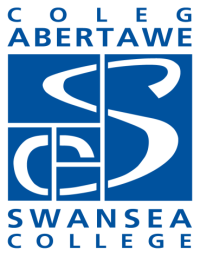
Vocational education is education that prepares people to a skilled craft as an artisan, trade as a tradesperson, or work as a technician. Vocational Education can also be seen as that type of education given to an individual to prepare that individual to be gainfully employed or self employed with requisite skill. Vocational education is known by a variety of names, depending on the country concerned, including career and technical education, or acronyms such as TVET and TAFE.
National Vocational Qualifications (NVQs) are practical work-based awards in England, Wales and Northern Ireland that are achieved through assessment and training. The regulatory framework supporting NVQs was withdrawn in 2015 and replaced by the Regulated Qualifications Framework (RQF), although the term "NVQ" may be used in RQF qualifications if they "are based on recognised occupational standards, work-based and/or simulated work-based assessment and where they confer occupational competence".
The City and Guilds of London Institute is an educational organisation in the United Kingdom. Founded on 11 November 1878 by the City of London and 16 livery companies – to develop a national system of technical education, the institute has been operating under royal charter (RC117), granted by Queen Victoria, since 1900. The Prince of Wales, later King Edward VII, was appointed the first president of the institute.

The Chartered Management Institute (CMI) is a professional institution for management based in the United Kingdom. It was founded as the British Institute of Management (BIM) in 1947 or 1948, merged with the Institution of Industrial Managers (IIM) in 1992 to form the Institute of Management (IM), and gained a royal charter, and its present name, in 2002.
A graduate diploma is generally a qualification taken after completion of a first degree, although the level of study varies in different countries from being at the same level as the final year of a bachelor's degree to being at a level between a master's degree and a doctorate. In some countries the graduate diploma and postgraduate diploma are synonymous, while in others the postgraduate diploma is a higher qualification.

Swansea College was a further education college in Swansea. It was one of the largest further education colleges in Wales with over 15,000 students and employing approximately 1,000 staff. Swansea College merged with Gorseinon College on 20 August 2010 to create a single sixth form and further education college for the Swansea area called Gower College Swansea.
The BTECLevel 3 diploma is a Further Education qualification and vocational qualification taken in England, Wales and Northern Ireland. The qualification is organised and awarded by Pearson within the BTEC brand and it is equivalent to A-Levels. It is equivalent to the GCE A Levels, more specifically to three A2 awards and the AVCE.

Selby College is a tertiary college, offering A Level courses through its Sixth Form Academy, work-related vocational courses, apprenticeships, business training and adult education courses. It is located in Selby, North Yorkshire, England. The College is a provider of A levels and vocational education for sixteen to eighteen year olds. Selby provides apprenticeships, higher education including foundation degrees, honours degrees and HND/HNC level qualifications as well as workforce training.

The National Examination Board in Occupational Safety and Health is a UK-based examination board offering qualifications in health, safety, environment and wellbeing management.
In the UK education sector, there are a wide range of qualification types offered by the United Kingdom awarding bodies. Qualifications range in size and type, can be academic, vocational or skills-related, and are grouped together into different levels of difficulty. In England, Wales and Northern Ireland, qualifications are divided into Higher Education qualifications, which are on the Framework for Higher Education Qualifications (FHEQ) and are awarded by bodies with degree awarding powers, and Regulated qualifications, which are on the Regulated Qualifications Framework (RQF) and are accredited by Ofqual in England, the Council for the Curriculum, Examinations and Assessment in Northern Ireland and Qualifications Wales in Wales. In Scotland, qualifications are divided into Higher Education qualifications, Scottish Qualifications Authority qualifications and Scottish Vocational Qualifications/Modern Apprenticeships, which are on the Scottish Credit and Qualifications Framework (SCQF). Scottish Higher Education Qualifications are on both the SCQF and the FHEQ.
Accounting Technicians Ireland is the leading professional body for Accounting Technicians on the island of Ireland. They have over 10,000 members and students in the Republic of Ireland and in Northern Ireland.
The Business and Technology Education Council (BTEC) is a provider of secondary school leaving qualifications and further education qualifications in England, Wales and Northern Ireland. Whilst the T in BTEC previously stood for Technical, according to the DFE (2016) it now stands for Technology. BTECs originated in 1984 and were awarded by Edexcel from 1996. Their origins lie in the Business Education Council, formed in 1974 to "rationalise and improve the relevance of sub-degree vocational education". They are the responsibility of the Minister of State for Skills, Apprenticeships and Higher Education in the Department for Education.

St Helens College is a further education college serving the borough of St Helens. In 2009/10 it had 2,193 full-time adult learners aged 16–18 plus another 585 part-time learners. It had 541 full-time adult learners, plus another 3,215 part-time adult learners. The total number of enrolments in 2009/10, including 14-16, FE, foundation learning, entry to employment, adult learners, and apprenticeships was 11,408 benefit claimants.

The Sri Lanka Institute of Advanced Technological Education is a statutory body in Sri Lanka coming under the purview of the Higher Education Ministry and offering Higher National Diploma courses. At present, it manages and supervises eighteen provincial Advanced Technological Institutes throughout the island. The institute is traditionally known for its education in the accountancy and engineering. As per the recommendations of the Committee appointed by Prof. Wiswa Waranapala, Deputy Minister of Higher Education in 1994, the Sri Lanka Institute of Advanced Technical Education (SLIATE) was formed in 1995, under the Sri Lanka Institute of Advanced Technical Education Act No. 29 of 1995. In 2001, the name of the institution was amended as Sri Lanka Institute of Advanced Technological Education (SLIATE).

Instructus Skills is both the standard setting organisation for business skills and the largest apprenticeship-issuing authority in the United Kingdom by number of certificates issued. Instructus Skills has one of the largest organisational footprints of any standards-setting body or Sector Skills Council representing approximately 11 million UK employees working in pan-sector occupations, and developed apprenticeship frameworks which were expected to be started by over 122,000 learners during 2010–11.
Alternative pathways in education are alternative means of obtaining educational qualifications, other than the traditional means of gaining access to or completing the required study to obtain the educational qualifications.

Regenesys Business School is a private business school based in Johannesburg, South Africa. The Regenesys Group includes Regenesys Business School, Regenesys School of Public Management, Regenesys School of Law, MyWealth Investments, Dananda Talent, Healthi, EdForAll, and Digital Regenesys. The group has campuses and offices in South Africa, Mumbai, Silicon Valley, Nairobi, and Lagos.
Ashford College is a further education college in Ashford, Kent founded in August 2014. It has been run by EKC Group since April 2020, when it was acquired from the West Kent and Ashford College corporation. Susan Bonett became Principal of the College in 2021, replacing Victoria Copp-Crawley. Its campus is situated on Elwick Road with work to expand the facilities beginning in 2022 after receiving substantial government funds.

Compass College (Modern Continuing Education Centre) is a tertiary institution providing career oriented hospitality & tourism management and business management programmes in Hong Kong. Compass College is an education organisation affiliated with the Modern Education. It provides one-year diploma programme and two-years higher diploma programme for secondary school graduates.
Apprenticeships have a long tradition in the United Kingdom, dating back to around the 12th century. They flourished in the 14th century and were expanded during the industrial revolution. In modern times, apprenticeships were formalised in 1964 by act of parliament and they continue to be in widespread use to this day.











